Revelations in the Interview: Operation Sindoor and Tactical Mistakes
India’s Chief of Defence Staff, Anil Chauhan, recently gave this interview to a reporter of the American news outlet Bloomberg. Everyone is asking why this interview was given to a US news outlet. But in this interview, India’s CDS has revealed big things. First of all, he confirmed that Indian fire jets were hit during Operation Sindoor.
Now, after being hit, whether they fell or not, we don’t know, but there were hits, and when he was asked how many Indian fire jets were hit, he did not give details, saying that numbers are not important. The main thing is that when this operation started initially from India, we made a tactical mistake, and after 2 days, we corrected that mistake. Then we showed that on the 9th and 10th, we flawlessly neutralised Pakistan’s air defence system and bombed their air bases with ease.
Confirmation of Jet Damage and Vague Clarifications
I want you to see this clip. The question since the incident between Pakistan and India is whether Pakistan downed an Indian jet, or more than that, can you confirm? I think what is that, not the jet being down, but why they were being down. Still, jet or why they were so, the good part is that we can understand the practical mistake which we made, remedy it, rectify it and then implement it again after two days.
Few all are jets again targeting at long range, which I said now here CDS Sahab has confirmed that yes our jets were down. Now, many people are interpreting the meaning of down in different ways. Some people are saying that the fire jet was hit by a missile. The fire jet did not crash. It happens many times that the fire jet is hit. After that, he lands, and his repair work is also done.
So what did that mean? Because not even one of our pilots was martyred. This is confirmed to a large extent. India did not lose even a single pilot. Whereas if you look from Pakistan’s side, they have confirmed that many of their pilots have been killed. However, they say that their Air Force personnel who were killed died when India was bombing their airbuses. This is confirmed to a large extent. You can see that.
Why Bloomberg? Questions on Choice of Platform
But in the case of India, when I was watching this interview, a question came to my mind that why was it necessary to suddenly give this interview to an American news outlet? Then, I went online and asked what the former diplomats of India think about this. Interestingly, they also had the same opinion, for example, Kewal Sibal sahab has been a senior diplomat of India. He has represented India. In many countries, he also said that Bloomberg has a track record. They write negatively about India. What was the need to give an interview to them?
Western Media Narrative and Diplomatic Concern
The purpose of this interview was to pin down our CDS on the loss of our aircraft so that the focus and the narrative remain on Pakistan’s success and not on India hitting at the terrorist headquarters and major airbases inside Pakistan. Exposing the ineffectiveness of their air defence system. Most Indians are saying this. In this entire interview, it seemed that the journalist was not interested in where you stood on terrorism.
He was not interested in how much loss Jaish-e-Mohammed Hafiz Saeed suffered here and how much loss Pakistan’s airbases suffered. The main central question about which Bloomberg later posted was how many Indian fighter jets have been shot down, because they know that their interview will sell on this topic.
Missed Opportunity to Strengthen India’s Narrative
So many of our former diplomats are asking questions here. When Bloomberg comes with this mindset, and you know that he will ask questions with this mindset, then what was the point of giving this interview to Bloomberg? Why fall into this Western media trap? A better answer might have been to ask the journalist instead of talking about the price we made Pakistan pay for its strong terror. And this thing is genuinely felt in this interview that perhaps we could have kept our narrative stronger, and that is why I say many times that India lags in narrative warfare. This is also one of the reasons.
Pakistan’s Contradictory Claims and India’s Silence
You all know what happened recently. Shabaz Sharif went to Azerbaijan and said that the Brahmos missile attacked in such a way that we did not get a chance to retaliate. Before that, Shabaz Sharif got exposed. He was gifting that fake photo to Asim Munir. Many narratives of Pakistan failed miserably. Now, suddenly giving this interview to Bloomberg, and here we did not even say how many of our fire jets were down. You can interpret the meaning of this word, how many fire jets have been down? Now, when Bloomberg asked about this that Pakistan says that India lost six aircraft. So here they said that no, this is a lie.
Lack of Specific Figures Leaves Room for Propaganda
Now the problem arises here. Pakistanis are free to speak their narrative. They will say, well, there were not six, there were five, there were four, because we are not giving a specific answer here on how many fighter jets have been lost here, you know, the losses. You should go to this interview. Okay? Or if you are going, then the answer to the question should have been that you should see how the satellite images show where Pakistan has been damaged. Why are you obsessed with how many fighter jets India has lost?
Historical Context: Past Wars and Aircraft Losses
Because I will give you an example. Let us go into history and see. In 1971 there was a war between India and Pakistan. We divided Pakistan into two parts. At that time, many of our fighter jets were shot down. I mean, India itself admits that 45 of our fighter jets were shot down. Pakistan says that no, sir, this is an understatement. 94 of theirs were shot down. But we accomplished our objective.
Kargil War: Victory Despite Aircraft Losses
Similarly, I will take you to the Kargil War. The world believes that India won the Kargil War. India recaptured the Kargil Heights from Pakistan. And in this war, too, if you look, our Air Force suffered losses. If you look at Indian figures, our MiG-21 was shot down. We had a helicopter, a MiG-17, a MiG-27; we lost these two aircraft in Kargil. But can we say here that we lost Kargil? No. We won Kargil. We remember the Kargil War today. Pakistan gets embarrassed. We proudly remember the Kargil War.
Media Bias and Sensationalism in Reporting
But in this particular case, the Western media has a strange obsession with how many fighter jets were shot down. You see, our objective was whether we hit our targets or not. So again, the narrative here is warfare, and in that, the Western media is largely talking against India. Whereas I have seen many American podcasters and many American defence analysts have come out openly. They have said that America should support India in today’s time.
Need to Control Narrative and Highlight Strategic Wins
For the first time in history, we are seeing India openly taking action against terrorism. We are directly killing terrorists. Why are you supporting them? Sir, weave a narrative, just for views and clicks, because it brings more clicks. You know, we get more views that Rafale has fallen or something has happened, a sensationalism is created. The Pakistani pilots who have been killed, which Pakistan has again confirmed. No one is interested in that. No one even cares because they know that they do not die here. The Balochistan Liberation Army would have killed them.
Public Sentiment and Reflections on Operation Sindoor
But this interview, which has just happened, was all in Bloomberg. In this, I was seeing that in reaction to this, many people on social media were remembering AK Bharti sahab in today’s time. You will remember that he had given many answers regarding the initial pause of Operation Sindoor, and many people are remembering Bipin Rawat Sahib here today that if he were here, he would have given a good answer.
Tactical Shifts and Missed Opportunities in the Operation
But one thing I think we are realising now is that when Operation Sindoor was started initially, our objective was not to damage the Pakistani Army. We had directly targeted the terror infrastructure of Pakistan. At that time, the Pakistan Air Force tried to engage us in some dogfights, etc., and they must have also fired missiles, etc., from their side. I think India was not expecting that initially. Later, when we saw that okay, military-to-military talks are going on, we neutralised their air defence system and comfortably bombed Pakistan’s air bases and declared proper supremacy.
Ceasefire Timing and Strategic Considerations
But yes, I will agree that in today’s time, since we are accepting all these things. Perhaps India could have delayed the ceasefire a little more. Perhaps, we could have done what we were planning to do in Karachi. We could have caused some more damage to Pakistan here and then done the ceasefire. It would have been a bit better.
Read More: https://hindiakhbarr.com/racism-against-immigrants-in-american-society/


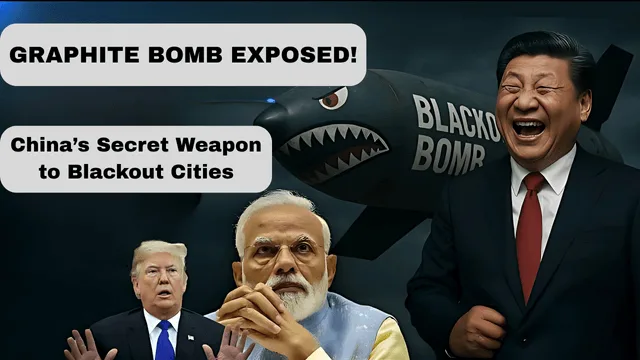
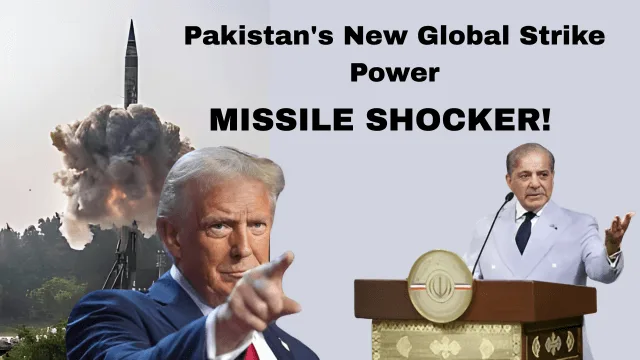
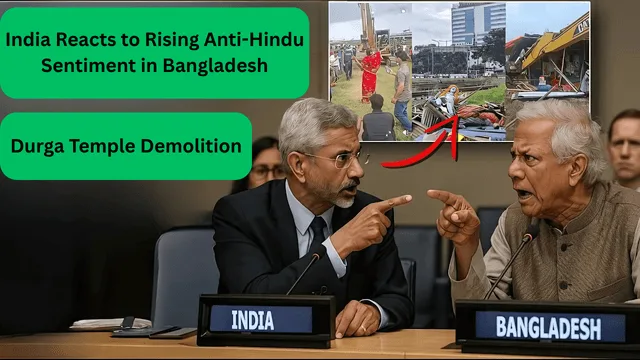

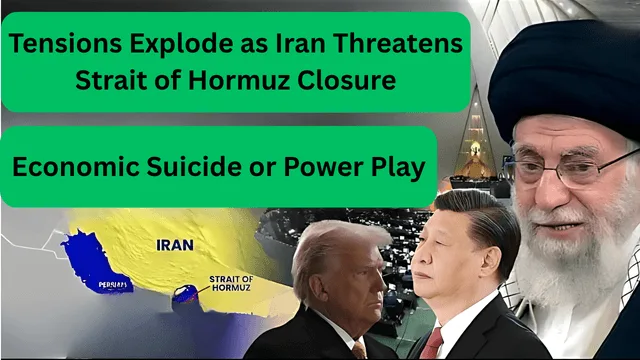


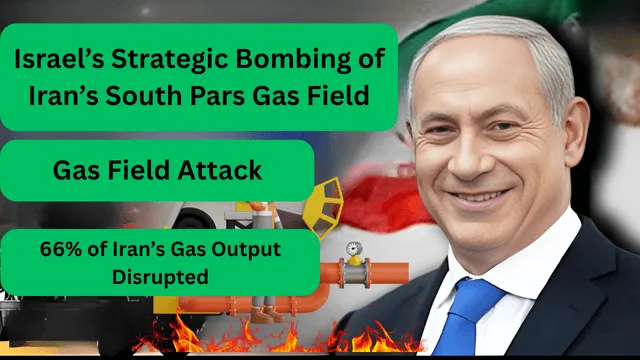

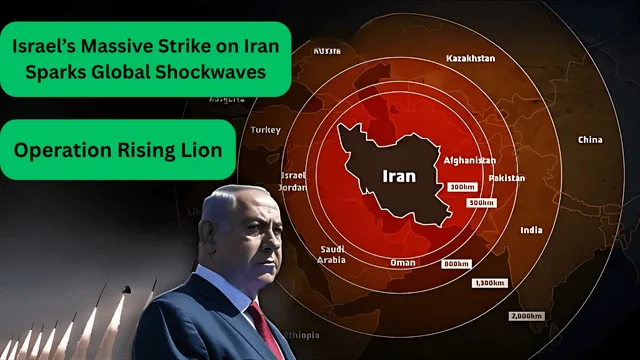
Leave a Reply